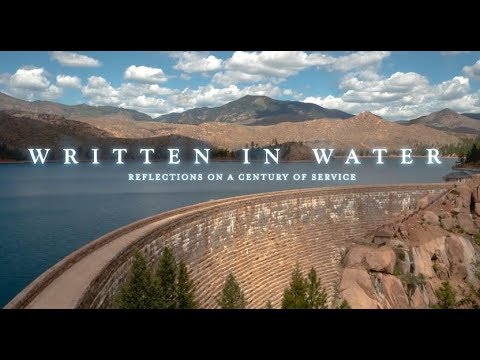
A look back at 2018
For Denver Water, 2018 was filled with 100th anniversary celebrations and the beginning and end to some major capital projects.
But for a water utility, weather is usually the headline for any year.
And 2018 was no different, especially with the hot, dry start to the summer, when temperatures soared into record-breaking territory and fires burned across Colorado.
“We tied or set a lot of records this last summer in terms of weather,” said Mitch Horrie, a senior water planner at Denver Water.
For the Denver area, the weeks between May 15 and July 15 were the hottest and driest in the 70 years that Denver Water has been keeping daily weather data, dating back to 1949.
The metro area on June 28 also tied an all-time daily high temperature record for Denver when gauges registered 105 degrees.
The good news is that Denver Water’s customers still used at least 20 percent less water compared to similarly hot, dry stretches in past years. And the reductions come despite significant population growth.
The summertime string of hot, dry weeks followed a spring runoff that didn’t produce as much water as expected.
On the southern side of the collection system, which pulls water from Dillon Reservoir and the South Platte River, the snowpack ended the season at 70 percent of average. But runoff in this area was just 40 percent of normal.
Conditions like this typically result in an extreme forest fire season for Colorado. Even though there were a few fires that Denver Water was keeping a close eye on around our properties and watersheds, none of the fires had a major impact to our facilities this summer.
And one fire provided valuable evidence as to why the From Forests to Faucets program, our proactive approach to forest health management and mitigation work to reduce catastrophic forest fires, is worth the investment. A fire break in Summit County is credited with saving nearly $1 billion worth of homes and infrastructure from the Buffalo Fire.
But, 2018 wasn’t just about the weather.
Construction at the site of the new Northwater Treatment Plant started in September. The new, state-of-the-art plant will have modern filtration and disinfection technology.
And two long-running projects were wrapped.
The five-year rehabilitation of the dam at Antero Reservoir, built in 1909, officially ended, with Denver Water certifying the final phase of the project as complete this fall. The dam — shorter, wider and stronger than the original one built using donkeys and wagons — is ready for its next 100 years.
The renovation of the Ashland Reservoir site, to replace water storage tanks in Wheat Ridge, also ended this fall with the final landscaping now in place. The two underground tanks, tucked into what looks like a quiet neighborhood park, replace tanks that were built decades ago.
We also looked to the future by hosting the PureWater Colorado Demonstration Project that showcased the benefits of reusing water. It’s one of the innovative technologies the state is looking at to help meet Colorado’s future water needs.
This was a perfect year to host the demonstration project, as 2018 — our 100th anniversary year — also marked a chance for Denver Water to celebrate our past, present and future.
Denver Water dates to a historic vote on Aug. 6, 1918, when Denver residents voted to create a five-member Board of Water Commissioners. Today, Denver Water employs 1,100 people who deliver clean, safe, reliable drinking water for 1.4 million people in Denver and surrounding suburbs.
As part of the celebration year, on Aug. 6, 2018, Denver Water CEO/Manager Jim Lochhead opened a time capsule sealed 40 years ago, in 1978, when the current administration building opened.
We took a look back at our history through the lens of “Written in Water: Reflections on a Century of Service.” The film looks at the Mile High City’s historic relationship with water, how a reliable water supply enabled its growth and Denver Water’s relationships with people and communities across Colorado.
As we look back on the year that was, we also look forward to the next, watching the weather patterns and rejoicing in the gift of early winter snows.
Fall and these last few weeks have been great on the water front, with ski resorts heralding a string of storms that brought several feet of snow and early openings for the season.
“The snowpack looks great so far, but it’s too early to tell what will happen next spring,” Horrie said. “But it’s a great start and we’re happy to see the early season moisture.”



